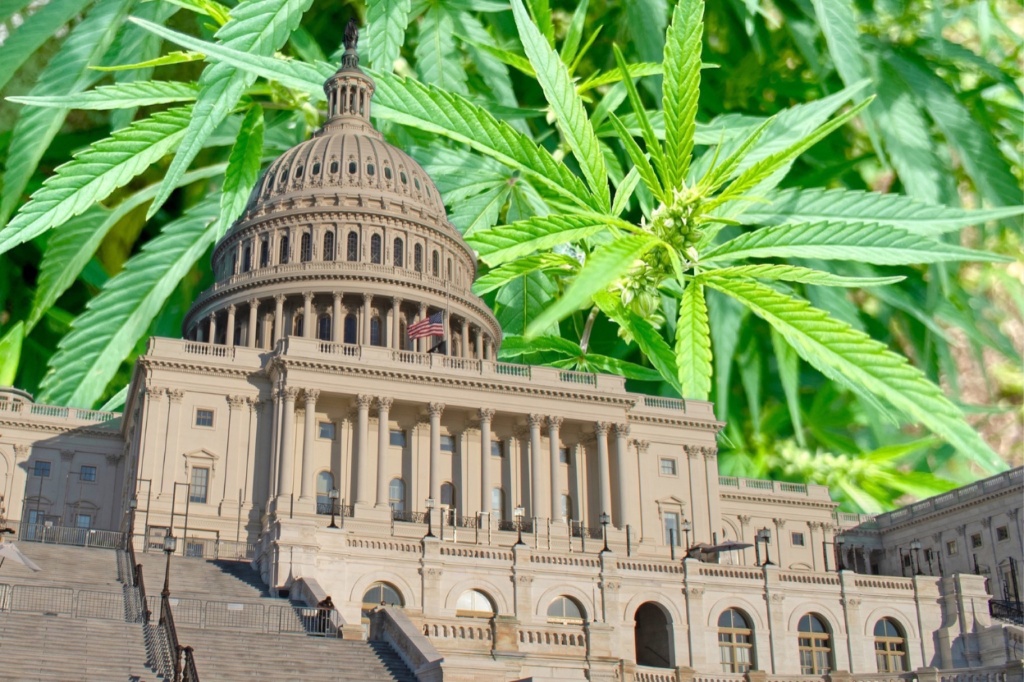Op-ed: Congress must not sabotage the cannabis industry

GreenState regularly shares contributor perspectives on the industry and trends. The ideas expressed here are wholly those of the author and do not necessarily reflect those of GreenState’s newsroom.
Section 280E of the IRS tax code has been one of the greatest burdens on licensed cannabis operators in every legal state across the supply chain. But when the Drug Enforcement Administration (DEA) announced plans in 2024 to reclassify cannabis to Schedule III, the industry finally saw a glimmer of hope. Rescheduling would mean that 280E no longer applied, allowing cannabis business owners to file taxes like any other business, saving billions of dollars for the industry as a whole. Long-overdue tax fairness seemed to be on the way.
However, that hope began to fade as we saw reclassification hearings be postponed in early 2025, and the discouragement continued with the introduction of legislation by Senators James Lankford (R-Okla.) and Pete Ricketts (R-NE) to amend 280E so that its tax penalties would apply to cannabis businesses regardless of federal scheduling.
RELATED: Hemp THC isn’t a loophole, it’s the law
This bill is a misguided threat to the future of the viable legal industry and the communities we serve. It is rooted in deep-seated prejudices and injustices, and antiquated myths that led to prohibition and the war on drugs in the first place. The messaging behind this legislation is also, to put it plainly, inaccurate. Discontinuing 280E for licensed cannabis businesses isn’t a “tax break,” as Senator Lankford labels it on his website. Rather, it would simply put licensed cannabis companies, including medical companies, on the same level playing field as all other legal businesses.
For years, state-licensed cannabis companies have operated under the constraints of Internal Revenue Code Section 280E, which prohibits us from deducting ordinary business expenses because cannabis remains a Schedule I controlled substance. This means that while cannabis businesses comply with state law, create jobs, and pay taxes, they are often taxed at effective rates greater than 70 percent – compared to the 21 percent corporate rate paid by other industries. That’s more than three times the amount of other industries! And as a result of this stark disparity, many legitimate businesses are pushed to the brink of insolvency, unable to reinvest in growth, employee benefits, or community initiatives.
The bill introduced by Senators Lankford and Ricketts is not a technical fix—it is a targeted attack on an industry that has already been denied banking access, insurance, and basic tax equality. The bill would lock in discriminatory tax treatment, making it impossible for us to deduct salaries, rent, utilities, or even local taxes—expenses every other legal business can claim.
RELATED: California’s cannabis market at a breaking point
The reality is this is not about public safety or responsible regulation. It is about singling out cannabis entrepreneurs—many of whom are small business owners and social equity operators—for permanent financial punishment. Such a move would stifle innovation, limit job creation, drive up prices further and perpetuate the illicit market Congress claims to oppose.
If this proposal becomes law, the consequences will be dire. Continuing to put a burgeoning industry at a disadvantage will lead to:
- Fewer jobs and lower wages
- Reduced tax revenue for states that have chosen to legalize and regulate cannabis.
- More business failures, particularly among independent and social equity license holders
- A thriving illicit market, as legal operators are forced out by impossible tax burdens.
- Eroded opportunities for job creation and community reinvestment
Additionally, continuing to subject licensed cannabis businesses to 280E will deter prospective industry investors wary of unsustainable profit margins. The limited funds that the industry can put towards innovation and expansion due to abnormally high taxes undermines investor interest and confidence, as seen in the reluctance of traditional lenders to engage with cannabis operators due to perceived instability and regulatory risks.
RELATED: Lawmakers should look to pot prisoners before casting votes
The legal cannabis industry is projected to generate billions in economic activity and support hundreds of thousands of jobs nationwide. Why would Congress want to undermine this progress by imposing punitive tax treatment that no other industry faces?
Congress should be working to support legal, regulated cannabis—not sabotaging it. Instead of doubling down on failed prohibition-era policies, lawmakers should allow us to compete on equal footing, invest in our communities, and deliver safe, high-quality products to consumers.
At Jaunty, we believe in responsible business, social equity, and economic opportunity. We urge Congress to reject this harmful legislation and finally deliver the tax fairness that state-legal cannabis businesses deserve.